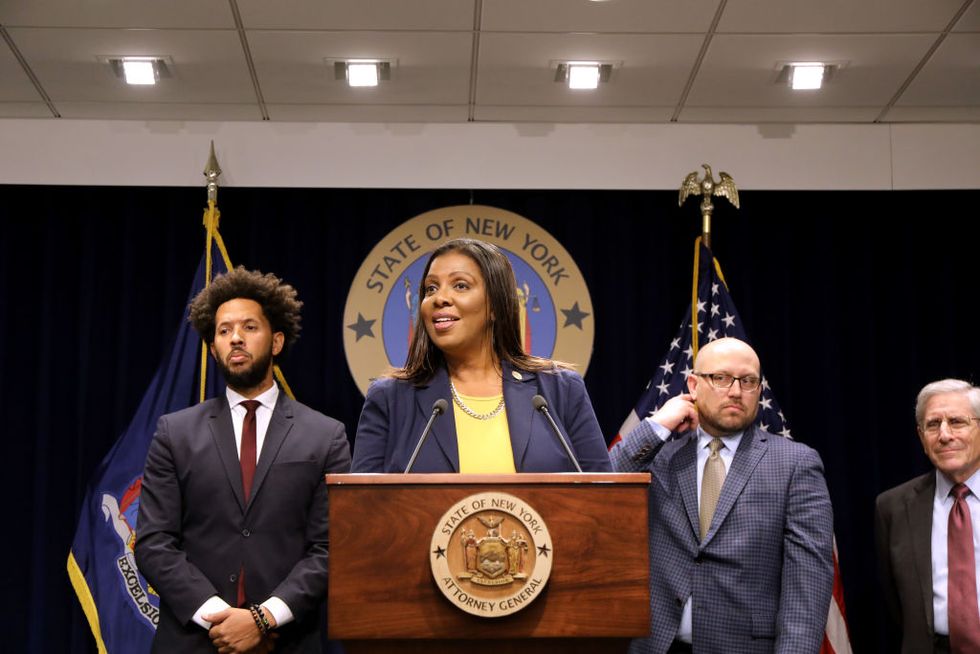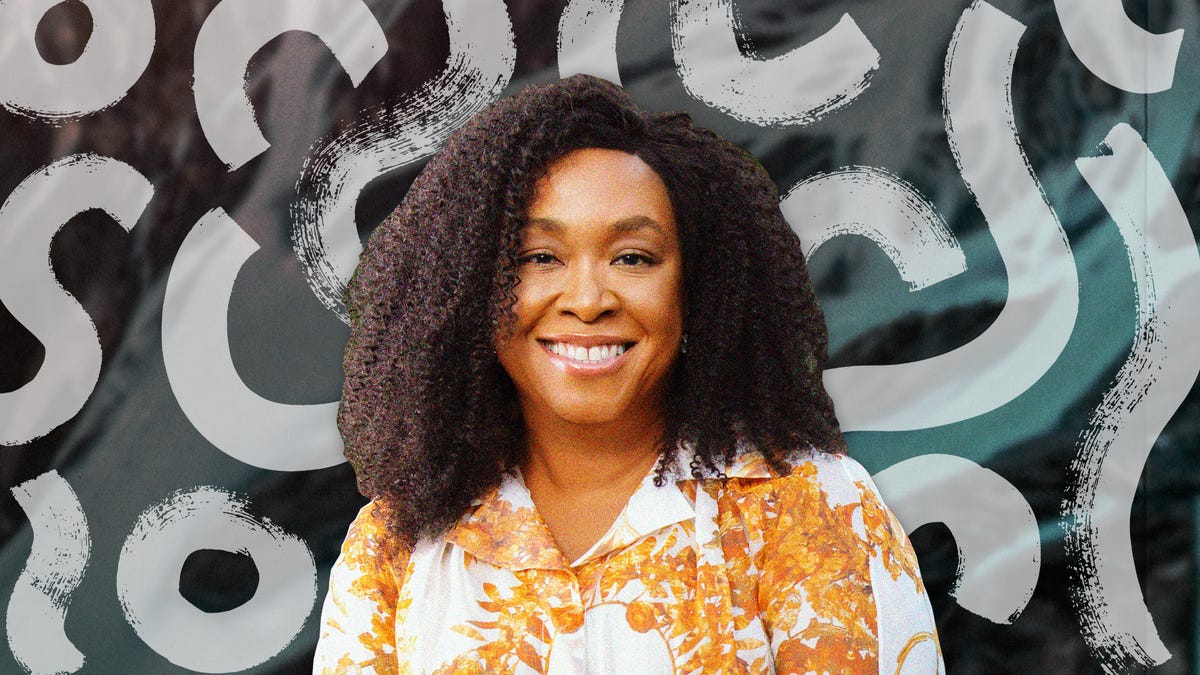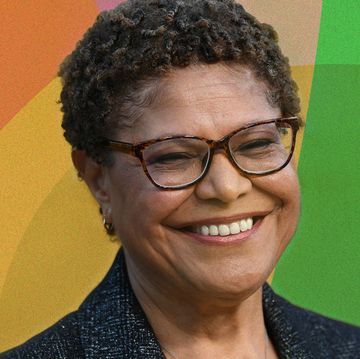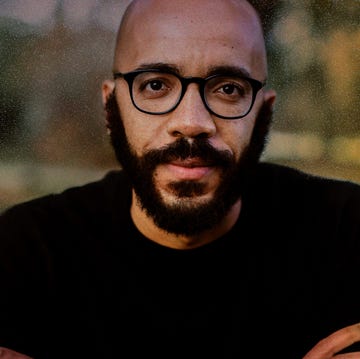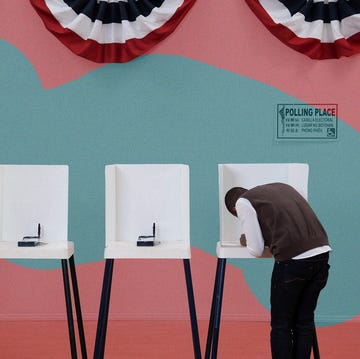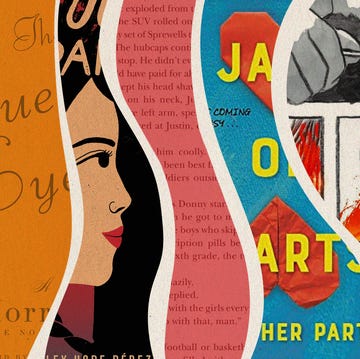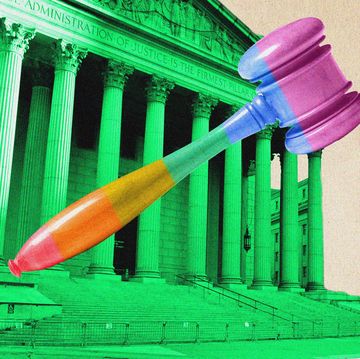Celebrating the contributions of Black people in America is an important part of our country's story. But too often reflections on Black History Month focus on a few iconic figures, and not the myriad of unsung heroes who've influenced our lives. This year, we're highlighting some of the women making Black History NOW, from a chief economist and a woman fighting to expand voting rights, to a trailblazing Attorney General working to protect the rights of others, this group of groundbreaking women are making the world better today.
A lot of people see Letitia James as a rock star politician, but to let her tell it, she’s still a Brooklyn girl at heart.
Admirers of New York’s Attorney General might not buy that pitch, given that she’s known for taking big legal swings against modern-day Goliaths. In the last month alone, her office announced plans to sue pro-life protesters who harassed women outside a Planned Parenthood clinic, and she recently filed a lawsuit against the NYPD for using excessive force on demonstrators during last summer’s Black Lives Matter protests.
These bold moves follow the jaw-dropping announcement in August 2020 that James was suing to dissolve the National Rifle Association, and, of course, her years-long — and still-ongoing — investigation into the Trump family’s finances. Her work has earned her enthusiastic cheerleaders, with some of her 130,000 Twitter followers comparing her to Daenerys’ dragons, and calling her a role model.
So yeah, while James — she goes by “Tish” — might think she’s a regular woman from BK, plenty of other people would say she’s anything but. So what should her fans call themselves — à la Beyoncé’s Beyhive or Rihanna’s Navy? Does “Tishies” work?
“Cut it out!” she says, chuckling. Speaking via phone from her office, James had just emptied the trash and shoveled snow, and cautioned against heaping more praise in her direction. “You know, you young people on social media are really interesting. I've seen the memes. I've seen the responses. I appreciate all of the individuals who believe in my values, want to make this a more perfect nation and want to stand up for those who are vulnerable, and those who are locked out of the sunshine of opportunity.”
It’s fashionable these days for people to get praise for “doing the work,” but James’ increasing spotlight is the result of her two-decade long career as a public servant. A graduate of Howard University’s School of Law, James won a seat on the New York City Council in 2003, repping parts of Brooklyn. Ten years later, she was elected Public Advocate of the City of New York. In both roles, James was known for taking on the massive, tangled systemic injustices most of us shake our heads at in anger and frustration. Her legislation took on the gender wage gap by banning questions about salary from the employment process. She also took on the gun industry and battled on behalf of children in foster care and tenants’ rights in court.
If her intention was merely to make history, she could’ve retired a long time ago — she’s the first woman of color to be elected to citywide office in New York City, the first Black woman to hold statewide office in New York, and the first woman (and Black person) to be elected Attorney General of New York. Suffice it to say, Letitia James is the living definition of Black History, even if making it into the record books is the furthest thing from her mind when she goes to work every day.
“I love to laugh,” she says. “I don't take myself seriously. It's important that I remain humble, that I stay connected to individuals in and around this community who are struggling each and every day that I can relate to them. I recognize this the power comes from above but it also comes from them, and it can be taken away at any moment.”
James is reminded of her commitment to her community when she strolls through her neighborhood in her jeans and sneakers. “When young women approach me, hug me, that keeps me going and propels me to go further,” she says. She’s also a therapist to her friends — they literally come to her brownstone, lay on her couch and wait for her advice. While she’s one of the most powerful women in New York, she’s also a fan of reality TV (as for the Housewives franchise, she’s Team Atlanta. “I miss NeNe, but I like that Porsha is getting into activism; I appreciate her marching on behalf of Breonna Taylor.”).
James also fortifies herself with prayer, and phone calls with prominent New York pastors, including Rev. Calvin Butts. At her home church, Emmanuel Baptist, she’ll sometimes sit behind the choir and sing. She’s one of eight siblings — a bookworm who couldn’t really date (she has four overprotective brothers) — but remembers seeing Jay-Z and Foxy Brown all the time in the neighborhood. And she’s good friends with another iconic Brooklyn emcee. “I am very close to Lil’ Kim,” she says. “I love Lil’ Kim.”
James is, by all accounts, as much an around-the-way Brooklyn girl as she is a historical figure in the making. She’s rumored to be considering a gubernatorial run, and though she’ll only coyly respond that God laughs at plans, being the governor of New York is certainly the next logical step in her career.
James is definitive, however, when asserting that her investigations into Donald Trump are not about her own moral crusades, but rather upholding the belief that no one is above the law. These are two New Yorkers — James and Trump — whose values couldn’t be more opposite from one another, but she maintains that her deep dive into the former president’s business dealings have nothing to do with her opinions of him — or her personal feelings about his tenure in the White House.
“It’s purely based on the facts and the law,” says James. “My personal feelings and my politics stop at the door. The litigation that I engage in does not allow me to inject my emotions into it.”
However James controls her emotions, the work shows when she gives press conferences, like the one she did when taking on the NRA. Those of us who’ve seen the group’s responses to mass shootings understand what she might be up against when taking on a case against America’s foremost gun advocacy organization, and the complicated machineries of power she’s throwing a wrench into. At the podium though, James was calm, confident, and even exhibited a little swagger. She is, after all, an everyday Black girl from Brooklyn.
“Sure, I get nervous, I'm normal. But then you close your eyes. And think of your ancestors, all of those whose shoulders you stand on. You have time to be afraid, you just get over those emotions, stand up, and step into your purpose. I'm used to people stereotyping me as a woman of color. Not just me, countless African American women, throughout the history of this country. But we rise up. And when they get in the way, we move them out of the way.”
Malcolm Venable is a staff writer at Shondaland.
Get Shondaland directly in your inbox: SUBSCRIBE TODAY

